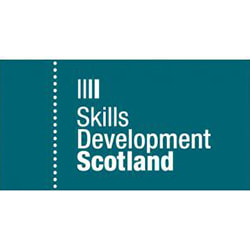Top Tips for Attracting the Right Candidate
We all know how important it is to have a great team of people working for us. Yet, it can prove tricky attracting the right candidates to your business. Taking time to review your current recruitment processes could make a huge difference to the calibre and diversity of your potential talent pool. Read on to find out how.
The Job Advert
Writing an effective job advert is a key component of talent attraction. A good job advert will contain more than just a description of the role – it will also set out your company’s ‘offer’. This is not just about salary; this is your chance to mention any appealing information about the company or the job role. This could include:
This will help to increase the pool of candidates who are motivated to work for you.
It is also worth thinking about how and where to advertise job roles within your company. Social media can be extremely powerful, not least because it increases the likelihood of reaching younger applicants. Attending careers fairs and other similar events at local schools, colleges and universities is also a great way of promoting job vacancies and will ensure that you have a number of talented applicants to choose from.
Writing an effective job advert is a key component of talent attraction. A good job advert will contain more than just a description of the role – it will also set out your company’s ‘offer’. This is not just about salary; this is your chance to mention any appealing information about the company or the job role. This could include:
- A brief about your organisation and why it’s a great place to work
- Any opportunities for training and development
- Information about employee benefits or rewards
This will help to increase the pool of candidates who are motivated to work for you.
It is also worth thinking about how and where to advertise job roles within your company. Social media can be extremely powerful, not least because it increases the likelihood of reaching younger applicants. Attending careers fairs and other similar events at local schools, colleges and universities is also a great way of promoting job vacancies and will ensure that you have a number of talented applicants to choose from.
The Job Description
It is vital to carefully consider the content of the job description. Be clear not only on the duties and responsibilities that you are expecting the candidate to fulfil, but also on the skills and competencies required to be able to do the job effectively.
If creating a job description is something you would like support with, please access our job description guide and job description template below. Alternatively, you can contact the DYW team who would be happy to support you further.
It is vital to carefully consider the content of the job description. Be clear not only on the duties and responsibilities that you are expecting the candidate to fulfil, but also on the skills and competencies required to be able to do the job effectively.
If creating a job description is something you would like support with, please access our job description guide and job description template below. Alternatively, you can contact the DYW team who would be happy to support you further.
The Recruitment Process
Anyone can perform well at an interview, but how do you know the successful candidate is going to live up to expectations once they are in post? You may already have an extremely effective interview process in place and if this is working well for you then there may not be any reason to change it. However, if you want to explore other methods of assessing your candidates, please do not hesitate to get in touch with us and we will happily provide further support and advice.
Why should you consider making changes?
Young people with a limited work history may not always be able to shine in “traditional” job interview situations, as they do not have the extensive career history that other, more experienced applicants can offer. It can therefore be worthwhile incorporating practical or group-based tasks, to get a sense of how applicants – including younger candidates - would truly perform in the job.
To demonstrate what we mean, let’s consider competency-based interviews. Competency questions can be useful for understanding how someone has approached a particular situation, for example, finding out about a time when the candidate has worked effectively as part of a team. However, you may find scenario-based questions more useful for understanding what a candidate would do in a typical “on-the-job” scenario, for example, “how would you deal with an angry customer?” This is especially advantageous if the candidate has had limited work experience, yet they may still possess many of the skills you are looking for.
Breaking away from “traditional” interview methods could transform your talent attraction process and give candidates a real chance to shine. You may therefore want to consider the following alternatives to a standard face-to-face interview:
Why should you consider making changes?
Young people with a limited work history may not always be able to shine in “traditional” job interview situations, as they do not have the extensive career history that other, more experienced applicants can offer. It can therefore be worthwhile incorporating practical or group-based tasks, to get a sense of how applicants – including younger candidates - would truly perform in the job.
To demonstrate what we mean, let’s consider competency-based interviews. Competency questions can be useful for understanding how someone has approached a particular situation, for example, finding out about a time when the candidate has worked effectively as part of a team. However, you may find scenario-based questions more useful for understanding what a candidate would do in a typical “on-the-job” scenario, for example, “how would you deal with an angry customer?” This is especially advantageous if the candidate has had limited work experience, yet they may still possess many of the skills you are looking for.
Breaking away from “traditional” interview methods could transform your talent attraction process and give candidates a real chance to shine. You may therefore want to consider the following alternatives to a standard face-to-face interview:
Telephone Interview
Including a telephone interview as part of your recruitment process can not only save you time, it is also a great additional assessment method, especially if the job role you have advertised involves telephone communication.
Including a telephone interview as part of your recruitment process can not only save you time, it is also a great additional assessment method, especially if the job role you have advertised involves telephone communication.
Group Interview
Organising a group interview is a great way of assessing a range of candidates for a variety of skills. Group interviews are especially useful for assessing communication, team working and leadership skills, providing you with the opportunity to evaluate how potential employees interact in a real-life situation.
Organising a group interview is a great way of assessing a range of candidates for a variety of skills. Group interviews are especially useful for assessing communication, team working and leadership skills, providing you with the opportunity to evaluate how potential employees interact in a real-life situation.
Case Study Interview
You will provide candidates with a brief describing a situation that they will be required to resolve. In this type of interview, you would set each candidate up to read the information and ask them to prepare their response within an allocated amount of time. This is a great way of testing a range of skills such as logic, problem-solving and communication.
You will provide candidates with a brief describing a situation that they will be required to resolve. In this type of interview, you would set each candidate up to read the information and ask them to prepare their response within an allocated amount of time. This is a great way of testing a range of skills such as logic, problem-solving and communication.
In-Tray Exercise
This is a great way of testing a candidate’s organisational and prioritisation skills, as well as their ability to make logical decisions. This exercise involves providing candidates with a list of tasks and asking them to rank their importance in priority order. We have provided you with an example task below.
This is a great way of testing a candidate’s organisational and prioritisation skills, as well as their ability to make logical decisions. This exercise involves providing candidates with a list of tasks and asking them to rank their importance in priority order. We have provided you with an example task below.
Aptitude Test
You may want to use aptitude tests to assess numeracy or literacy skills. These are a useful way of measuring a candidate’s ability to work under pressure to produce accurate work.
These tasks are worth including for any role that involves a significant amount of written or statistical work. This could involve something as simple as asking a candidate to draft an email based on a scenario you have given them, which allows you an opportunity to review their written communication skills.
You may want to use aptitude tests to assess numeracy or literacy skills. These are a useful way of measuring a candidate’s ability to work under pressure to produce accurate work.
These tasks are worth including for any role that involves a significant amount of written or statistical work. This could involve something as simple as asking a candidate to draft an email based on a scenario you have given them, which allows you an opportunity to review their written communication skills.
Roleplay
Including a roleplay scenario as part of your interview process helps you to assess a candidate’s suitability for the role. It is a more effective way of understanding how a candidate would perform in a standard work-based situation than simply asking an interview question, and is a great way of assessing a young person who has more limited experience of the working environment.
A role-play could involve dealing with a customer complaint or handling a simple telephone query, allowing you to observe the candidate’s communication skills. As an employer, you can get into character and you can even use real situations that you or your staff have previously dealt with as a basis for the roleplay.
Including a roleplay scenario as part of your interview process helps you to assess a candidate’s suitability for the role. It is a more effective way of understanding how a candidate would perform in a standard work-based situation than simply asking an interview question, and is a great way of assessing a young person who has more limited experience of the working environment.
A role-play could involve dealing with a customer complaint or handling a simple telephone query, allowing you to observe the candidate’s communication skills. As an employer, you can get into character and you can even use real situations that you or your staff have previously dealt with as a basis for the roleplay.
Financial Support
Did you know?
In partnership with the Scottish Government, Skills Development Scotland continues to offer a wide range of support benefiting small businesses from Scotland’s
Employer Recruitment Incentive (SERI) to help in taking on a Modern Apprentice, or business consultancy available through Skills for Growth.
In partnership with the Scottish Government, Skills Development Scotland continues to offer a wide range of support benefiting small businesses from Scotland’s
Employer Recruitment Incentive (SERI) to help in taking on a Modern Apprentice, or business consultancy available through Skills for Growth.
Managing a Young Person
So, you have successfully completed your recruitment process and you have managed to recruit a skilled individual who is going to bring a wealth of energy, potential and fresh perspective to your business. Now it’s time to think about the steps you can take to ensure that you manage your new employee in the most effective way.
Managing young staff may require a slightly different approach than the one you take with other employees, mainly due to their sometimes-limited experience in the working world.
Mentoring, supporting and providing variety are all essential parts of this process. However, it is equally as important to set expectations from day one by taking the time to provide a company induction. You will be surprised at the difference this will make in the long run.
Why not take a few minutes to read our top tips for inducting and managing young staff members.
Managing young staff may require a slightly different approach than the one you take with other employees, mainly due to their sometimes-limited experience in the working world.
Mentoring, supporting and providing variety are all essential parts of this process. However, it is equally as important to set expectations from day one by taking the time to provide a company induction. You will be surprised at the difference this will make in the long run.
Why not take a few minutes to read our top tips for inducting and managing young staff members.
Further Support
Orkney businesses can benefit from the wide range of support offered by the organisations listed below. From advice in helping your business to grow to finding out about opportunities to network, each of these organisations offer unique ways to help you as an employer. Simply click the logos below to find out more. Include logos for the following organisations:
You can also access useful guidance on employing younger workers by downloading the ACAS guide below. The guide contains advice for employers on how to help young workers and apprentices with the transition from education to the world of work and also provides guidance on some of the legal considerations that might be on your mind.






